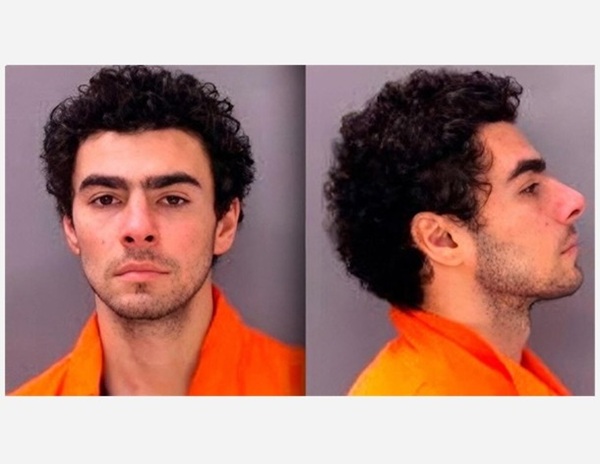NEW YORK—A New York state judge dismissed terrorism-related charges Tuesday against Luigi Mangione, the 27-year-old suspect accused of fatally shooting UnitedHealthcare CEO Brian Thompson last year, ruling that prosecutors failed to prove the killing was intended to intimidate the public or influence government policy.
Manhattan Supreme Court Justice Gregory Carro tossed out two counts — first-degree murder in furtherance of an act of terrorism and second-degree murder as a crime of terrorism — after Mangione’s defense team argued the charges were legally insufficient. In a written ruling, Carro stated that while Mangione’s alleged actions were driven by an “ideological” motive tied to perceived inequities in the U.S. health care system, they did not meet the state’s definition of terrorism, which requires evidence of intent to “intimidate or coerce” civilians or government entities.
“There was no evidence presented of a desire to terrorize the public, inspire widespread fear, engage in a broader campaign of violence, or to conspire with organized terrorist groups,” Carro wrote. He described the alleged crime as a “heinous, but targeted and discrete killing of one person,” distinguishing it from broader acts of terrorism outlined in New York law, which was enacted after the Sept. 11, 2001, attacks.
Mangione, a University of Pennsylvania graduate, has pleaded not guilty to all charges. He remains in custody and still faces a second-degree intentional murder charge in New York state court, along with eight weapons-related counts, including criminal possession of a weapon. Prosecutors from Manhattan District Attorney Alvin Bragg’s office indicated they will proceed with the remaining nine counts, though no trial date has been set.
The dismissal represents a setback for state prosecutors, who had argued that Mangione’s writings and the high-profile nature of the Dec. 4, 2024, shooting in Midtown Manhattan — where Thompson was gunned down outside a hotel during an investor conference — demonstrated an intent to “violently broadcast a social and political message to the public at large” and create widespread shock.
Separately, Mangione faces federal charges in New York, including murder with a firearm, which could carry the death penalty if convicted. He has also pleaded not guilty to state charges in Pennsylvania related to his arrest there shortly after the shooting, when he was found with a ghost gun, fake ID and writings critical of the health insurance industry. The U.S. Department of Justice is seeking capital punishment in the federal case.
Outside the courthouse, dozens of supporters rallied in Mangione’s defense, chanting “Free Luigi!” and holding signs protesting the health care system. Some had camped overnight to attend the hearing, which drew significant media attention amid ongoing debates over corporate greed and access to medical care. Thompson’s killing sparked national outrage and renewed scrutiny of the insurance industry’s practices, with UnitedHealth Group reporting billions in profits amid widespread customer complaints.
Mangione’s attorneys hailed the ruling as a victory, while Bragg’s office emphasized that the core murder allegation stands. The case continues to highlight tensions between ideological motives and legal thresholds for terrorism designations in high-profile violence.


